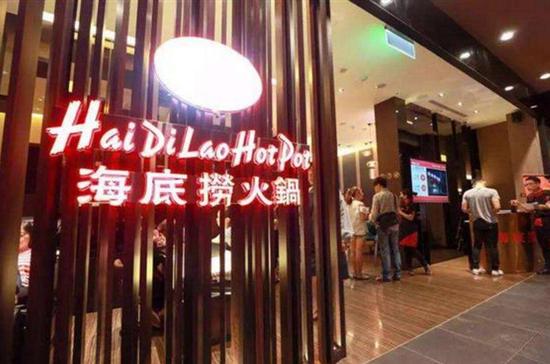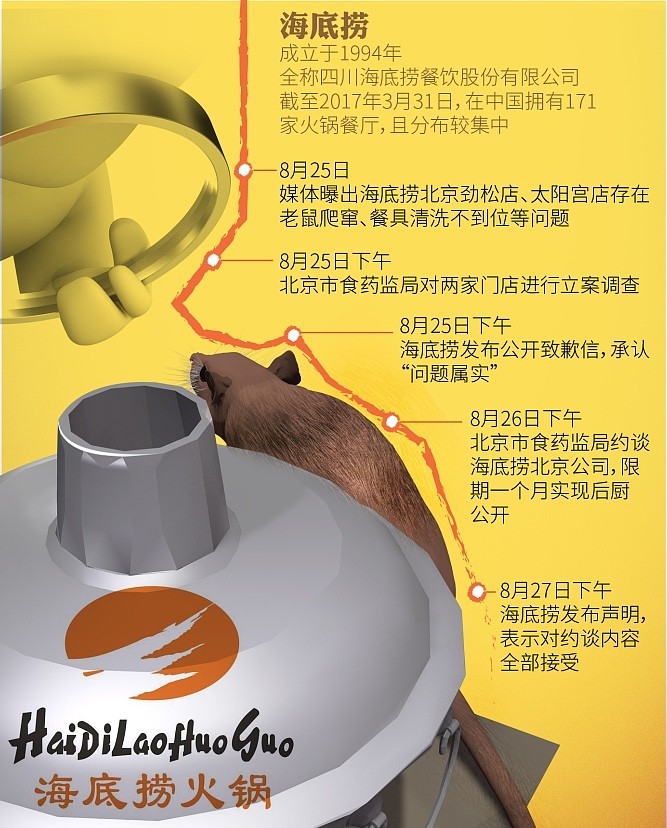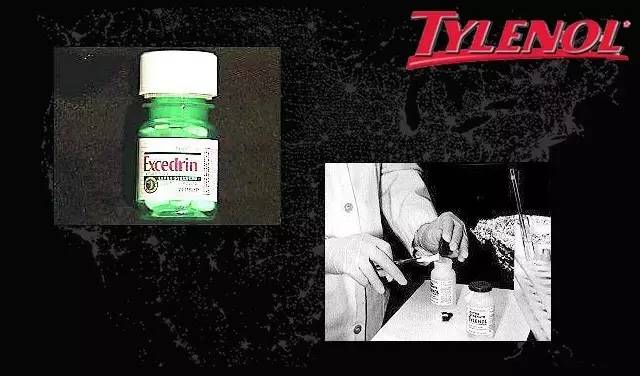Abstract It is costly to admit mistakes, and the cost of not admitting mistakes is greater. If a company really goes to the position of acknowledging the mistake, it will only show that the mistake is too big and it doesn't matter. On the contrary, sincere admit mistakes and corrections, the public will give you unexpected opportunities. Qin Wei: What do consumers need...
It is costly to admit mistakes, and it is more expensive to not admit mistakes. If a company really goes to the position of acknowledging the mistake, it will only show that the mistake is too big and it doesn't matter. On the contrary, sincere admit mistakes and corrections, the public will give you unexpected opportunities. 
Qin Wei: What kind of business do consumers need?
When the Haidilao incident broke out, I was interviewed abroad with a media group. Everyone is not accustomed to Western food, so every time I go to dinner, I will go back to China and go to the gourmet food. I said that I want to eat dumplings from the bowl noodles. The editor-in-chief of an economic newspaper said that everyone should go to eat sea fishing. After the undercover investigation, the reporter of the Legal Evening News discovered the health problems in Haidilao and exposed them. A group member who was still staying abroad said in the group, "Please inspect Haidilao as soon as possible, get together soon" and have returned to Beijing. A group member said, "I checked the sea fishing first, can eat, no mouse."
I rarely eat hot pot, and Haidilao has only been there once or twice. The service is thoughtful, a bit crowded and a bit noisy, the dishes have no memory, and finally the face looks good. For Haidilao, I am a relatively neutral observer.
Why does the Haidilao brand have a buffer against the crisis?
The first question I think of is why the media group members who have always liked the supervision of public opinion did not approve the sea fishing? Negative reports with such conclusive evidence can be hit hard or even devastated by switching to another brand. Why does Haidilao have stronger resistance and cushioning power?
Because Haidilao is a brand and consumers are loyal to it, brand loyalty has played a role at this moment. It may be difficult to measure the Haidilao brand from a financial perspective, but from the psychological reaction of consumers, there is obviously a preference, which can be said to be eccentric.
There is no love for no reason in the world, and the brand is the total experience of consumers' long-term accumulation. Consumers will not be eccentric. In the history, Haidilao must have done a lot of things that consumers like and trust, so that consumers have formed a good and solid subjective cognition. Therefore, when there is a problem, these "pre-" and "first-in" memories and associations will Affect the angle and extent of their problem.
Haidilao's thicker brand assets help it withstand the impact of the crisis, but this is not a reason to take it lightly. False now, again and again, problems, especially those of the same nature? Although it did not perform well in its peers at the time, its brand equity would quickly decay or even turn into a negative asset. Because consumers are not always eccentric, if one day hurts, it will be difficult to recover.
Haidilao must understand this truth, so its attitude towards media exposure is very clear: rapid feedback, seeking truth from facts, and accepting all the orders, reflecting, blaming, and improving from the perspective of the board of directors. This is an attitude that enterprises with values ​​pursue should be the choices that must be based on long-term sustainable development. From the perspective of utilitarianism, "people are not sages, can you not change? You can change, you are good," The best way to win consumer and social recognition.
Incidentally, in the face of the crisis, Haidilao definitely has a strategy in public relations, because public relations is also a basic function of enterprises. However, if you think that this is a public relations issue and you can solve it by public relations, then you will go astray. Fortunately, from the public relations statement of Haidilao, more reflects the requirements and continuation of values.

The few statements from the sea fishing made me think of the second question. When a company makes a mistake, what kind of attitude can it be better understood?
Very simple. First, admit mistakes, really make mistakes wrong; second, correct mistakes and become better self.
It's easy to say, it's not easy to do. Think about it, in reality, from organization to individual, especially a bit of background, what is the usual practice after making mistakes? One is to cover up the mistakes, the second is to "correctly" understand the mistakes, the third is that right or wrong can not be discussed or simply said that the corrector is wrong, the fourth is that my mistake is much lighter than other homes, and the fifth is that there are some mistakes. It is necessary that the price will exist for a long time. The sixth is that it is not common to see the mainstream, not to be harsh, and so on. In this context, it has become a normal reaction when enterprises have problems.
Eccentric consumers often have the above attitudes. For example, "It is really difficult for a reporter to find two mice in four months." "Even if the kitchen of a five-star hotel is the same," I feel that Haidilao is being concealed. ",and many more. This will just aggravate the company’s perception of ignorance, not evil, and make mistakes.
However, don't really admit your mistakes, how can you make a mistake? In the old saying, "Do not use evil to be small." In reality, the question of how good or evil is to be the size of the problem, let the evil escape again and again, accumulate less and more, and then can no longer look back. Is there such an example? ?
When Yan returned to death, Confucius "cry the cry", sad to the extreme, why? Because it is so eager to learn like Yan Hui, not to anger, not to be able to find it again. If you don't anger, you don't transfer your anger to others; if you don't, you don't make the same mistake. Many companies make the same mistakes because they don't completely reflect on their own mistakes, but always count others' mistakes.
It is costly to admit mistakes, and it is more expensive to not admit mistakes. If a company really goes to the position of acknowledging the mistake, it will only show that the mistake is too big and it doesn't matter. On the contrary, sincere admit mistakes and corrections, the public will give you unexpected opportunities.
In 1982, Johnson & Johnson's Super Tylenol case in the history of corporate public relations, the most famous case to date is the 1982 Johnson & Johnson (hereinafter referred to as "Johnson") Super Tylenol case (Tylenol). In September of that year, seven people had mysterious deaths in Chicago. The investigation found that they had taken Super Tylenol in the near future and found cyanide in their products. Health officials in Cook County, near Chicago, held a press conference on the morning of September 30 of the same year to confirm that cyanide was the cause of death, and that cyanide was found in accidental capsules in the remaining Techno capsules. A factory from Johnson & Johnson in Pennsylvania.

There are cyanide in the medicine, and 7 people are killed. Can such a company still live? Obviously hard. At the time, polls showed that 94% of the drug users said they would not take the drug in the future. The market share of Technobe fell to less than 7%. Some media said that Johnson & Johnson “cannot sell any productsâ€. But in the end, Johnson and Johnson survived miraculously.
The two key actions taken by Johnson & Johnson are: First, communicate openly with the public. From the first reporter's interview call to 2,500 interviews in a few weeks, no concealment was made; on the afternoon of September 30, 800 hotlines were set up to handle customer consultation, and 450,000 telegrams were sent to relevant doctors, hospitals and pharmacies that night. Warnings prohibit the use of Super Tylenol and terminate all Tylenol ads indefinitely; second, protect each consumer. Johnson & Johnson reclaimed all the Super Tylenol capsules from the national market and closed the factory. At the end of the first week after the crisis, more than 8 million Tylenol capsules were tested with the help of the FBI and FDA. A total of 75 capsules were found. Contains cyanide.
In response to consumer fears of Tylenol, on October 8, Johnson & Johnson announced that it would transform capsules into tablets that are not easily poisoned. The CEO internally told employees that “as long as everyone does their job, the company can recover 70-80% of the business†(afterwards he admitted that this is just an incentive, there is no other way). On October 15th, FDA test results proved that Johnson & Johnson had no fault of negligence and negligence in the poisoning incident. Johnson & Johnson then issued 61,000 "Dear Doctor" letters signed by medical director Thomas Gates to describe the steps to deal with the crisis. It is recommended that patients and consumers use non-capsule products until the company resells new capsules. On October 22, Johnson & Johnson released the first advertisement, and Thomas Gates explained the truth of the incident in the advertisement and asked the public to continue to give valuable trust. As the police finally verified that someone deliberately poisoned the capsule, the crime of Johnson & Johnson was completely stripped. However, Johnson & Johnson did not re-launch the product until it introduced a new three-layer sealed package of new bottled products, eliminating the possibility of drug being poisoned again. This is the first anti- adulterated drug package in the United States. It costs an extra $2.4.
A year later, Johnson & Johnson won back 85% of the original market share, and Techno became the leader of painkillers in the United States. Johnson & Johnson's then CEO, Jim Burke, said that Johnson & Johnson's crisis management and good results have fundamentally taken advantage of the public's belief that Johnson & Johnson is trustworthy, "the former management of the founding company passed on to Our silver plate is the most beneficial tool you can have - the company's credibility." The Wall Street Journal said: "Johnson Johnson has chosen a practice of taking huge losses to protect others from harm. If you do your conscience, Johnson & Johnson will have a lot of trouble."
The Johnson & Johnson Super Tylenol case is familiar to anyone who has studied marketing courses. The public relations treatment of the Haidilao incident is basically the same as the Johnson & Johnson company of the year. This is not a superb marketing paradigm. It should be a common sense and a basic conscience of the enterprise. It is a pity that some enterprises in China that are much larger than the sea fishing can not even make a mistake today.
Compared with the Johnson & Johnson case, the public relations of Haidilao is really good. If there is a flaw, we have never seen the way the founder and actual controller of Haidilao took the communication with the public. I don’t know how he understood it. This is totally different from Johnson & Johnson CEO Burke. Probably this is the difference between a family business and a public company. Zhang Yong is not like Wang Wei of SF, and he is very low-key for a long time. He will talk about the management and service of Haidilao on many occasions, but in the face of such a big crisis, he did not even say a word. Maybe he thinks that the entrepreneur's responsibility only needs to be reflected by his company.
What kind of business do consumers need now to talk about the last question, what kind of business consumers need.
I have read hundreds of netizens' messages on Sina Finance and other platforms. If I remove some special emotional reactions, I conclude that I have the following conclusions:
Chinese consumers are aware of goods, and the formation of consumer perception is rational. What the company does, consumers will remember in their hearts.
Chinese consumers are not paranoid, but naturally have certain inclusiveness. For companies that have made mistakes, the consumer's rebound is generally in a normal range, rather than leaving the market and abandoning the company. If the company sincerely admits the mistakes and corrects the mistakes, the tolerance of consumers to the wrong company will increase. Even some media people who are filled with indignation may go to Haidilao in a few days.
Chinese consumers will be more and more vigilant about various corporate myths, and will not turn a blind eye to corporate problems because of their generosity. In some ways, they may still be very "revengeful", for example, they will have some tolerance for food that enters their appetite, but the milk powder for their children is extremely picky.
Chinese consumers will increasingly trust honest companies. Companies that are willing to be supervised, regularly disclose issues and solutions, and who are not ignorant, are more likely to have a sense of affinity. Sunlight is the best preservative, and openness is the best supervision, and this applies to all organizations.
Chinese consumers will have greater empathy for companies that can speak more. A company that accepts consumer choice in a fully competitive market is one that consumers can speak more freely. Usually more vocal, more participation, more supervision, the company has a problem, consumers will be their own things, there will be greater empathy, will think about how to help companies improve.
In the face of such a consumer, what should the company do and what should be done, is it not clear?
Finally, we would like to pay tribute to the Legal Evening News. In their comments, they said, "Whether it is a well-known large-scale catering, food company, or a small workshop or a black den, as long as it is related to food safety, our reporters will try their best to dig out the truth through unannounced visits. We are looking forward to this. The way to urge catering food companies to be strict self-discipline, looking forward to the continued exposure of the media and the strict supervision of the government, consumers can have a healthy and safe consumption environment." "Reporting on Haidilao is not the starting point, not the end point. As long as the relevant issues still exist, we will carry out unannounced visits and exposures to the end!"
The media can have such a position, it is the well-being of consumers, and it is also the driving force for self-pressurization and unfortunate survival.
There is no mythical business. Only by constantly self-reflecting and transcending themselves can a company create a legend that belongs to itself as a consumer.
(The author of this article: The founder of the Commercial Civilization Alliance, the founder of the Qin dynasty circle of friends, and the editor-in-chief of the original "First Financial Daily".)
Solar Panel Inverter,Solar Inverter,High Efficiency On-Grid Inverter,Solar Hybrid Solar Inverter
Resun Solar Energy Co., Ltd. , https://www.resunsolargroup.com